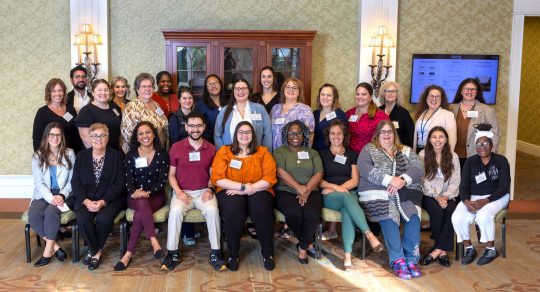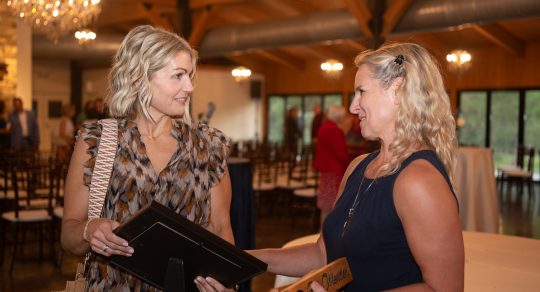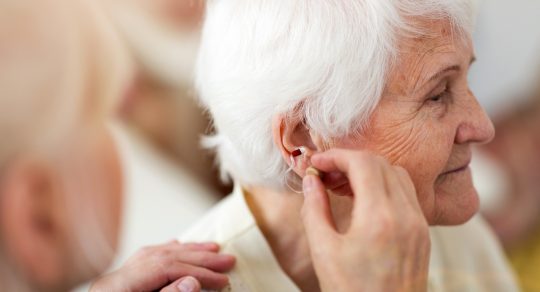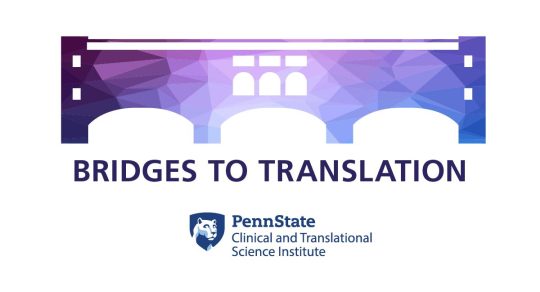Division
Geriatric Medicine
On This Page
The Division of Geriatric Medicine specializes in aging medicine. Through clinical leadership, geriatric education and research partnerships, the division is dedicated to optimizing health, independence and what matters to people over the age of 65 across the continuum of care so that they can live fully on their terms and achieve their best quality of life.
Welcome from Our Division Chief

Harry Albertman Chair in Geriatric Medicine and Associate Professor, Medicine
Education in Geriatric Medicine
Geriatric Medicine Fellowship
General Internal Medicine Fellowship
Research in Geriatric Medicine
LTC RISE
The Division of Geriatric Medicine is engaged in a multi-year grant in partnership with the Pennsylvania Department of Health on the Long-Term Care Resiliency, Infrastructure Supports, and Empowerment (LTC RISE) grant-funded initiative, which aims to help long-term care facilities weather and overcome the challenges posed by the COVID-19 pandemic. South Central LTC RISE provides Long Term Care communities, both staff and leadership, with access to free resources in areas of interest including:
Resident Care
Emergency Management
Infection Prevention
Workforce Development
Leadership Development
Occupational Health
Wellness
The LTC Resiliency, Infrastructure Supports and Empowerment (RISE) program is a partnership between the Pennsylvania Department of Health, Pennsylvania Department of Human Services, Pennsylvania Emergency Management Agency and four healthcare organizations. The healthcare organizations have established partnerships covering six regions across Pennsylvania.
The South Central LTC RISE team at Penn State is responsible for coverage of 13 counties in this region of Pennsylvania including: Adams, Bedford, Blair, Cumberland, Dauphin, Franklin, Fulton, Huntingdon, Juniata, Lebanon, Mifflin, Perry, and York.
Other Division Grant Work
Through the Harry Albertman Endowment, the Division of Geriatric Medicine provides opportunities to apply competitively for funding to advance innovation in geriatric clinical care and to collaborate with clinician-researchers in other divisions who do research that is relevant to aging.
Dr. Nicole Osevala was named Chief of Geriatric Medicine and Harry Albertman Chair in Geriatric Medicine by the Penn State Vice Provost Office, effective September 2023.
In 2020, Osevala led a multimillion-dollar Department of Human Services grant to address COVID-19 outbreaks in central Pennsylvania nursing homes. Following this, she led the Pennsylvania Department of Health-funded RCAT (Regional Congregate Care Assistance Team) for the South Central region, and now leads a multi-year grant RISE (Resiliency, Infrastructure Supports, and Empowerment) to advance quality improvement and emergency preparedness initiatives in long-term care communities and providers in South Central PA.
Clinically, Osevala led the formation of the Penn State Health post-acute care program, which serves nine nursing homes in the region with a team of seven physicians and eight advanced practice providers. In 2020, under Osevala’s leadership, the Division of Geriatric Medicine was formed, and it has grown to include inpatient geriatric consultation services, outpatient geriatric primary care and consultation, including home visits, and a “SNF at home” home recovery care + program known as HRC+.
Osevala plans to leverage the multi-disciplinary expertise in geriatrics and care for older adults across Penn State Health, the College of Medicine and University to advance research, education, clinical resources and community support.
During the one-year Geriatric Medicine Fellowship, fellows complete a quality-improvement research project where they identify with a mentor a potential gap in care provided in the outpatient, long-term care or acute care setting. Together with a mentor, they develop a simple QI proposal. They spend the first few months implementing an intervention and ascertaining its effectiveness with a goal of submitting/presenting a poster abstract at an annual meeting and submitting a brief report for publication. In 2023, fellows presented their projects at two national meetings, AMDA-PALTC 23 and the American Geriatrics Society 2023 annual meeting.
Clinical Care in Geriatric Medicine
The Division of Geriatric Medicine delivers world-class, age-friendly, interprofessional collaborative care to people 65 and older across the care continuum. The division has an active inpatient geriatrics consultation service that works closely with the Trauma and Vascular surgery teams as well as the Hospitalist service at the Penn State Health Milton S. Hershey Medical Center, the only level 1 trauma and quaternary care center in Pennsylvania’s South Central, capital region.
At the Penn State Health Cocoa Outpatient Center, we provide primary and consultative outpatient geriatric care, specializing in the care of people over the age of 65 who have multiple, complex comorbidities, complex medication regimens, and geriatric syndromes (cognitive, mobility, and functional impairment) or who are living with dementia and need a whole-person, person-centered approach to comprehensive dementia care.
Clinicians in the division, including teams of advance practice providers and physicians, also provide care in the post-acute and long-term care space. They follow people admitted for short-term skilled rehabilitation at the Penn State Health Rehabilitation Hospital as well as patients admitted for personal care, skilled care and long-term care at multiple community-based settings affiliated with Penn State Health.
Age-Friendly Health System
In partnership with the Nursing Department, the Division of Geriatric Medicine led Penn State Health Milton S. Hershey Medical Center's recognition as a Level 2 participant, “Committed to Care Excellence” by the Institute for Healthcare Improvement. This is the highest level designation offered by IHI, and Hershey Medical Center is the only hospital in the region to gain this recognition. The projects developed to gain this recognition were supported by a multi-disciplinary team including geriatric medicine, hospital medicine, pharmacy, therapy services and nursing. The Age Friendly Health System initiative is a movement to improve the care for older adults across all care settings utilizing the 4Ms approach: Mentation, Mobility, Medications and What Matters.



